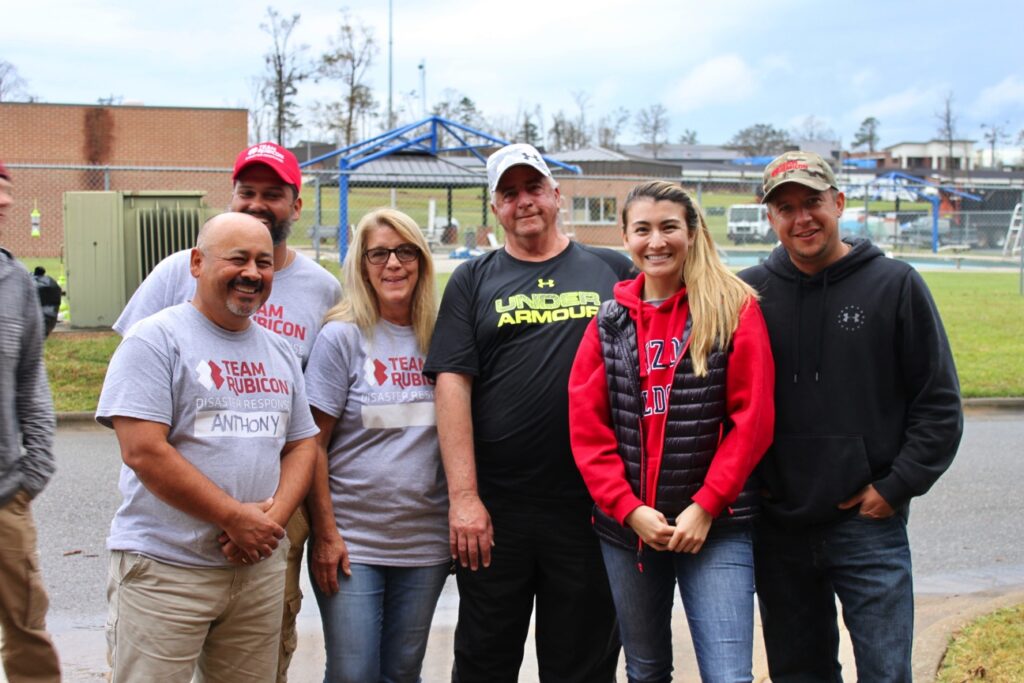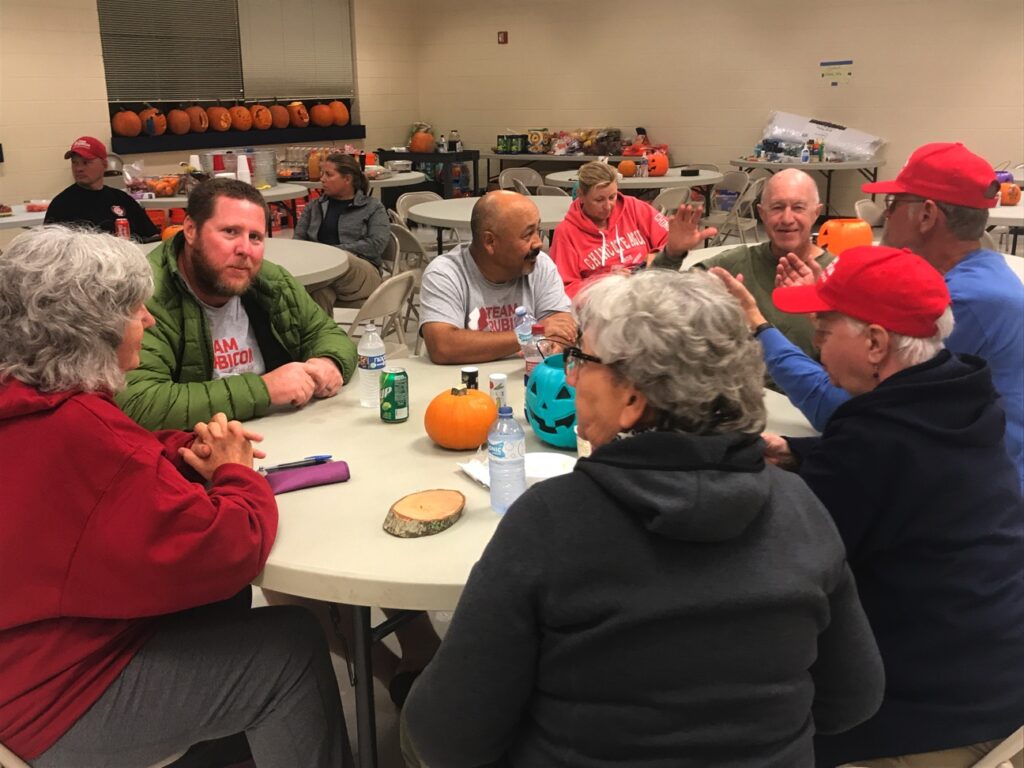I spent fours years in the Army as a light wheel vehicle mechanic and then went into the National Guard for a year. I was used to go, go, go, go, and then it all came to an abrupt halt. I felt like something was missing in my life.
On Christmas Day in 2002, my own family was touched by natural disaster. We were expecting 30 people to visit our house in Devore, California for the holiday, but a mudslide blocked the street and we called them and told everyone not come. Earlier in the year, there had been fires followed by too much rain, and now we feared the worst. We watched through windows as mud and debris spread around our house, filling our pool. I started putting important papers into the attic when my wife said there was mud coming from the bottom of our front door. Then she said the front door was flexing and making noises. I went to the door with my son by my side; my wife got onto a sofa with our one-year-old daughter.
As I got to the front double doors, they were bowing inward and the hinges were cracking and popping. I told my son to run and he fled toward my wife just as the front door busted open, with mud and debris slamming me against the wall. My wife and kids were on this sofa, which was lifted four feet from the ground. We had French doors leading to our pool. I was able to open one of the doors to divert the mud and debris but noticed my wife and kids floating toward this open door. I knew if they made it out this door they would end up in our pool, so I tried to close the door. Luckily the sofa caught on a ceiling fan preventing it from moving any further.

Anthony Bieggar pictured left.
I was able to wedge a six-foot table in front of the double doors preventing further mud flow from entering my house After calling 911 several times we realized we had to figure out how to get ourselves out safely. This whole ordeal took six hours, all the while with mud continuing to move around the property. Eventually, I finally noticed the mud and rocks and debris flow slowing down. We knew this was the moment to make our escape. My wife had grabbed a go bag she kept for our daughter with clothes, wipes, diapers, foods and meds. She followed me closely as we made our way around the pool. We made it to the street where a huge mass of boulders and mud were still moving. We walked over the rocks, my wife holding our daughter and me carrying our son. We made it across to my neighbor’s house on the other side at the bottom of the street.
By this time we knew we were on our own as no police, fire or rescue crew had appeared. My neighbor’s house was devastated, too. We were able to get a ride to the fire station about two miles away by my neighbor’s son, who had somehow arrived by a back road. I called my dad and told him what had happened, and he came with my sisters to pick us up. Soon after we found ourselves safe and sound at his house, where the Christmas party had been hastily relocated. We came in muddy, wet, shivering and exhausted. We took hot showers, put on borrowed clothes, and finally ate with our friends and relatives.
We had homeowner’s insurance, but not flood insurance because we lived on a hill. Because trees on our property were burnt, the insurance company called the damage “water damage” caused by the fire so they agreed to cover some of the damage. FEMA offered us an $18,000 grant, but since that and the insurance money wasn’t enough to do the complete rebuild that the house needed, we had to take out a loan. And what many people don’t know is if one gets a FEMA grant and have to take out a loan, the grant then turns into part of the loan and has to be paid back.
We spent five years dealing with the rebuilding process. We had a second mudslide go through our home two months after the first. We lived with eight different family members during that time, and we had to rebuild smaller than the original house because we didn’t have the money to rebuilt it as it was. Because of what we went through, I wanted to help other people who experienced mudslides and other disasters. So the next mudslide in California, I went and tried to help people, but I ended up getting placed in a sheriff’s car and taken out of the area, being told it wasn’t safe for me to be there. As time went on and with every mudslide, I still tried to help. I didn’t want people to be stuck going for so long rebuilding like we had been.

One day right after Hurricane Harvey, I saw something about Team Rubicon on the news, and what I saw clicked with me. I read as much as I could about Team Rubicon and I felt that was the piece of the puzzle that was missing in my life. TR Greyshirts talk the same talk. We help people and we do it as part of a team. On Operation Amberjack, I’m celebrating my one-year anniversary with TR. I’ve deployed four times.
I’m the founder and CEO of CORH Technology Partners, Inc. and the business I’ve built and all of the hard work I’ve done have been for my wife, kids and for others. Being a part of Team Rubicon is for me. Owning my business gives me the freedom to come on operations, and mentally and physically TR has been good for me. I’m not interested in assuming leadership positions—since I’m in one every day. With TR, I like doing the grunt work and being in the foxholes.
TR enables me to empathize with people who have been through disasters so that they don’t have to feel alone.
As told to Jill L. Ferguson during Operation Amberjack



